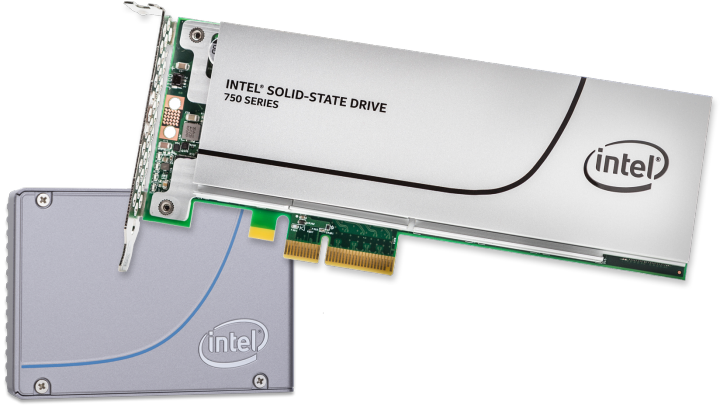Intel 750 Series 800GB NVMe PCIe SSD Review
Why you can trust Tom's Hardware
Conclusion
In our third round with Intel's SSD 750, we think the family is finally complete. Intel filled its capacity gap.
As we categorize the drives, we believe the 800GB SSD 750 best fits in the terabyte class. The 1.2TB model breaks past $1000 and lives off on its own island where only true workstation professionals dare venture. Intel's 400GB and 800GB implementations deliver very similar performance, but at more palatable price points for enthusiasts dedicated to consistency. This is the modern-day version of using a Seagate X15 SCSI hard drive in your desktop computer.
And just like those old X15s, Intel's SSD 750s cost a lot but deliver an even more dramatic experiential payoff. The SSD 750 puts a powerful supercomputer-like storage system into your desktop. It accelerates applications by reducing load time and enables smoother multi-tasking. Outside of the data center, it'd be difficult to hammer this drive hard enough to ever see its limits.
At roughly $1 per gigabyte, the 800GB SSD 750 is about as far as you can get from the TLC-based terabyte-class SATA drives we've been reviewing in the $200 range. If you just need a lot of flash-based storage, Intel's SSD 750 isn't your best choice. But if you're looking for a storage subsystem ready to accept your most performance-sensitive software, the NVMe-capable SSD 750 will ensure those applications start quickly and respond instantly. To be sure, you can't even compare SATA- and NVMe-based drives.
Perhaps sadly, the true benefits of NVMe can't even be realized today on the desktop. We simply don't have the software able to exploit the interface's potential. But there's something to be said for owning hardware that outstrips your software's needs. If there's such a thing as future-proofing in this business, Intel's SSD 750 has what it takes to stand the test of time.
MORE: Best SSDs For The Money
MORE: Latest Storage News
MORE: Storage in the Forums
Chris Ramseyer is a Contributing Editor for Tom's Hardware, covering Storage. Follow him on Twitter and Facebook.
Get Tom's Hardware's best news and in-depth reviews, straight to your inbox.
Follow us on Facebook, Google+, RSS, Twitter and YouTube.

Chris Ramseyer was a senior contributing editor for Tom's Hardware. He tested and reviewed consumer storage.
-
robodan918 Having owned the Samsung 950 Pro 512GB for a month now, I can say I'm consistently impressed and considering the price difference (I bought it for 167GBP / ~$240USD on an amazing sale) I can't justify the jump in price to the Intel 750 - even if random IOPS are nearly 2x higher. It'd probably be the difference of a blink of an eye. Still, as the 950 Pro is replacing an Intel 730, I can tell you that I've also been consistently impressed with Intel. If and when they go on sale, I usually end up convincing myself to buy them too.Reply -
Hanin33 is it me or is 70GB WPD abysmally low? especially for a 1.2TB drive. i suppose this drive series is not meant for high resolution video editing...Reply -
jchang6 there is problem in the mismatch of motherboards and PCI-E SSDs. The Xeon E3 motherboards may have 2 x8 slots, and the E5 boards might be 5x8 per socket, but more likely there is a combination of fewer slots, some x16, whereas all the affordable SSDs are x4, note that the P3608 is much more expensive. Could Intel put 2 750's on one x8 card, one connected to the lower x4 and the second to the upper x4? Alternatively, it would be nice if we could get an adapter for 2 M.2 to PCI-E x8.Reply -
rantoc So the Samsung 950 pro bets the intel 750 in low queue depths ie normal desktop workload (application starts and the like) and 750 beats 950 in higher qd's, both have their uses. Whats i like about my 950 pro over my 750 is its price/performance for desktop workloads.Reply -
hixbot I can't justify spending money on an ultra high-end SSD when Intel Optane is around the corner.Reply
